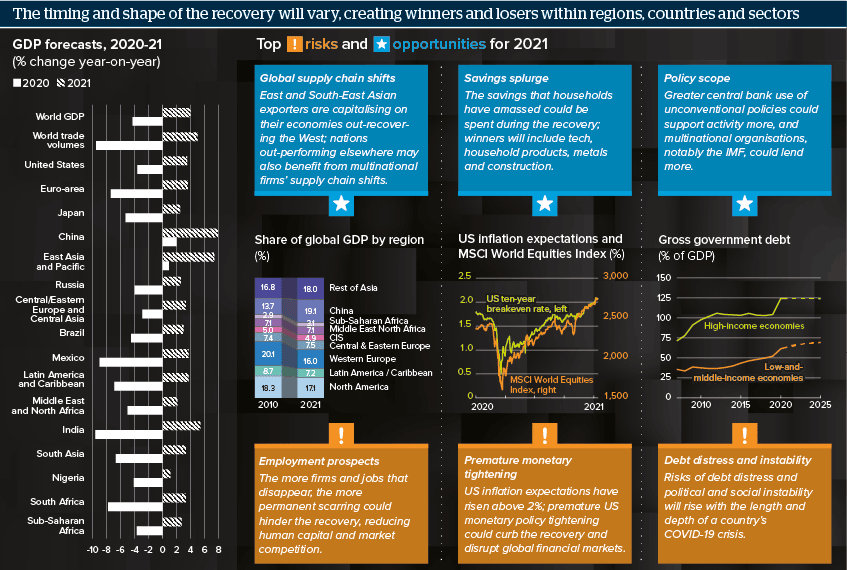Risks and opportunities 2021: Global economy
Economic and health policies are key to the West and many developing nations emerging swiftly from double-dip recession
Source: World Bank January 2021; IMF Fiscal Monitor, October 2020; Thomson Reuters Datastream; IMF World Economic Outlook October 2020
Outlook
Europe, the United States and many emerging markets risk falling back into recession due to the increase in COVID-19 cases and restrictions. Vaccination against COVID-19 should allow economic activity to recover in all sectors by the third or fourth quarters of 2021, at least in developed economies.
Developing economies are unlikely to achieve enough vaccination in 2021, and also have less scope for stimulus, while many are exposed to hard-hit sectors including tourism or commodities.
The unevenness of the recovery by region and sector will pressure governments and central banks to keep policy ultra-loose into 2022 despite fears about the debt burden, while more developing countries may need international aid.
Impacts
- All nations will have to time any removal of fiscal and monetary policy stimuli very carefully to avoid disrupting the economic recovery.
- Less office working and commuting, and more individual parcel trade, could change the transport, property and logistics sectors permanently.
- Tourism will be slow to recover, hitting Southern Europe and some developing nations hard; intra-regional coordination will be vital.
